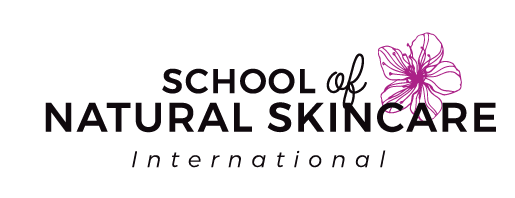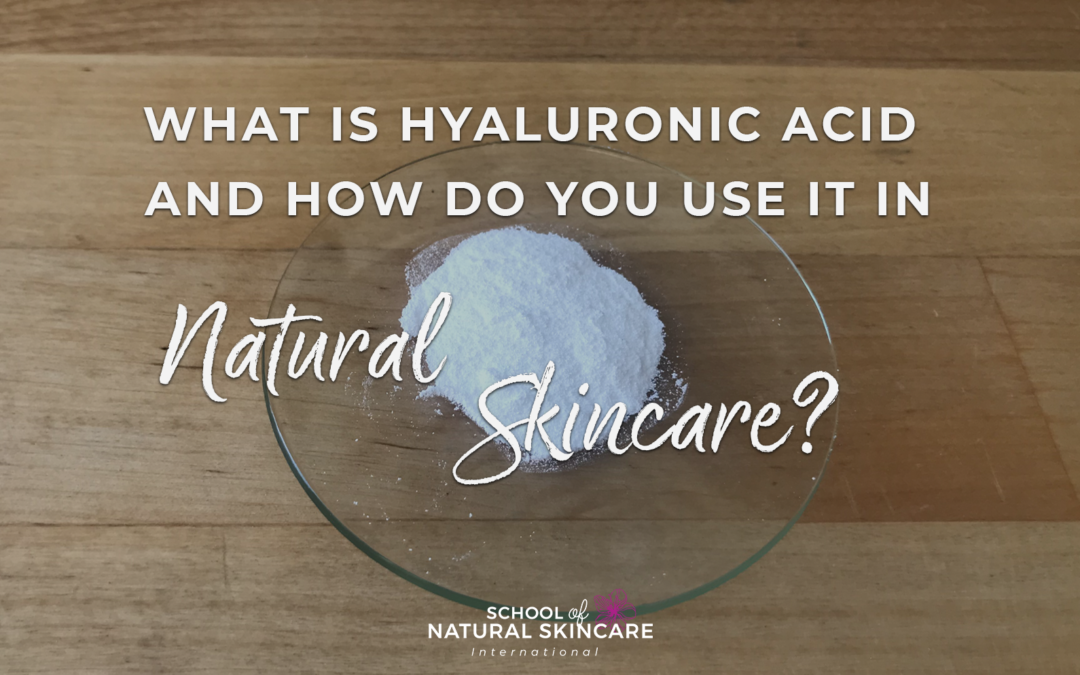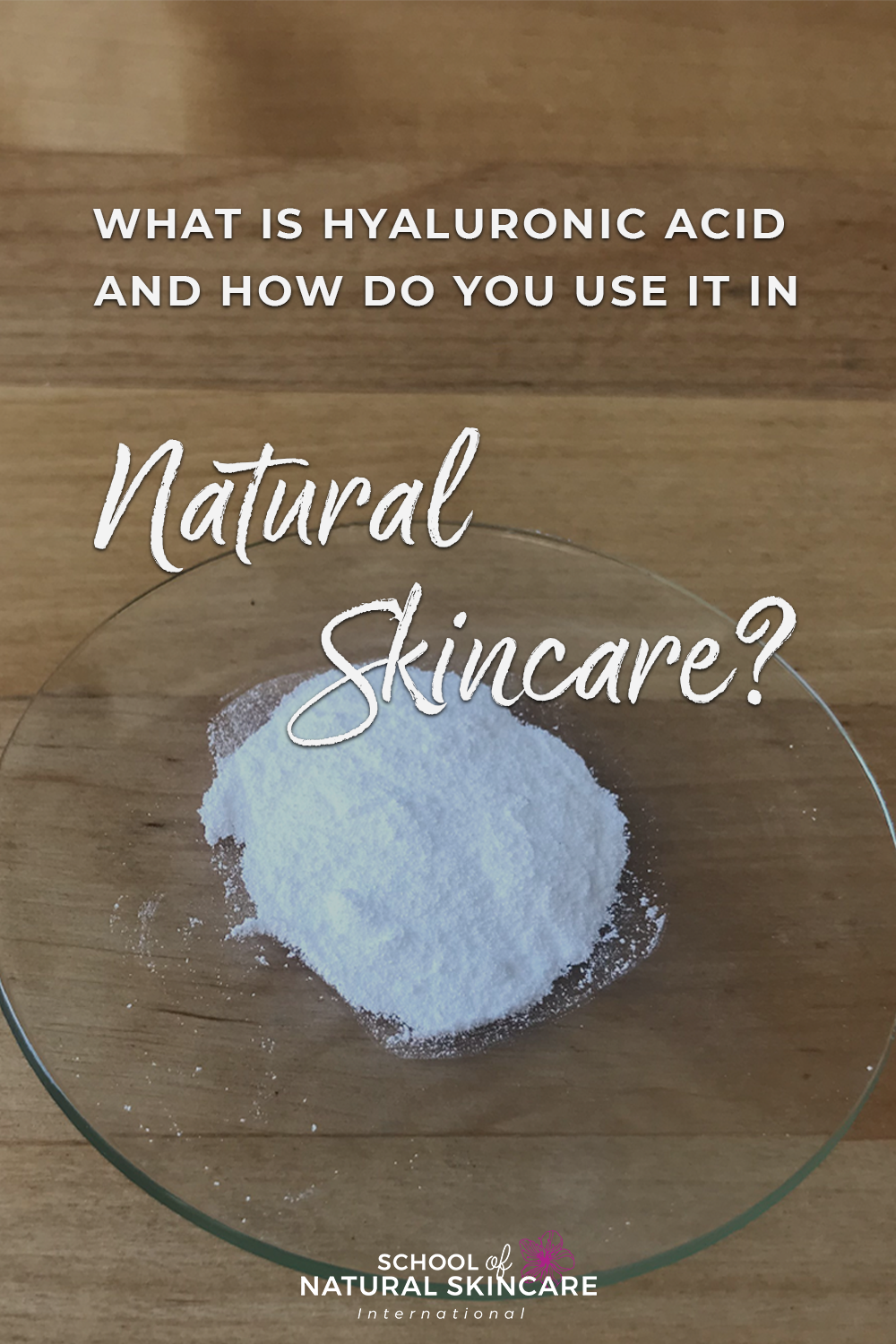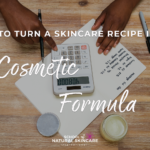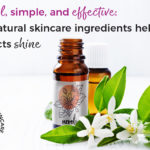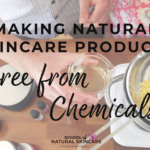(INCI: Hyaluronic Acid, Sodium Hyaluronate)
What is hyaluronic acid?
Hyaluronic acid (often shortened to HA) is one of the most powerful humectants available; it can hold up to 1,000 times its own weight in water!
What is really interesting about hyaluronic acid is that it is actually produced by our body and is a key part of connective tissue and joints, helping to lubricate and soften.
In the skin it is present in the dermis layer, where, combined with collagen and elastin fibers (which are responsible for the structure of our skin in the dermis), it makes sure our skin is plump, hydrated and smooth.
So, great news!
If you want to find out more about the structure and function of the skin, you can read our article Understanding How Your Skin Works.
The downside is that as we age, things change.
As we enter our 30s the amount we produce starts to diminish, especially with exposure to the sun. We can notice this when our skin starts to lose its elasticity, it starts to get drier, and lines and wrinkles begin to show.
This means that we then need to look to the outside world to replenish our resources and that’s where using hyaluronic acid in skincare products comes into play.
How does hyaluronic acid work in skincare?
There is something that is widely misunderstood in skincare, especially DIY circles, that relates to what hyaluronic acid in cosmetics can and can’t do.
The first thing we need to mention here is that whilst hyaluronic acid can be obtained from the external environment and can be harnessed in cosmetics, it is not the same quality as that produced by our own body.
This is mainly due to the fact that the hyaluronic acid produced by our body is located in the dermis layer, whereas the hyaluronic acid we get from cosmetics cannot penetrate deep enough to actually reach the dermis layer and replace the body’s own hyaluronic acid that has been lost due to the natural aging process.
Hyaluronic acid is made of rather large molecules that can only penetrate the epidermis layers of skin cells. It therefore remains in the upper layers of the epidermis, where it actively hydrates the skin.
However, that does not mean it is not a hugely valuable ingredient to use in our cosmetics.
Hyaluronic acid is a wonderful humectant that hydrates the epidermis wonderfully, plus it has strong moisturizing qualities both of which help to give the skin a more hydrated, moisturized and consequently plumper, smoother, softer and younger complexion.
With this winning combination, hyaluronic acid is a hugely valuable ingredient to use in our skincare products.
Those with dry skin will perhaps benefit the most because of its moisturizing and hydrating qualities, but given that the majority of people have dehydrated skin, at least to a certain degree (including people with oily skin types), hyaluronic acid can work wonders.
The hydrating properties of hyaluronic acid, as with other humectants, means that it smoothes and softens the skin, and can give the skin a more plump look, improving the appearance of wrinkles1. It also helps wound healing processes2.
As you can see, hyaluronic acid has huge value when used in anti-aging preparations and, if this is of interest to you, you’ll enjoy our article, 13 Natural Anti-aging Skincare Secrets Formulators Swear By.
You’ll find hyaluronic acid used in all sorts of skincare products from toners to moisturizers and high end serums.
Because it is a rather expensive ingredient, we usually prefer to use it in high-performance products, like deeply hydrating serums.
To get an idea of what a serum that uses hyaluronic acid looks like, check out our free recipe in our article, DIY hyaluronic acid serum.
What are the different types of hyaluronic acid that we use in skincare?
This is an important piece of information because you can’t just go and buy any form of hyaluronic acid and use it in your products.
Firstly, there are different molecular weights that offer different benefits and uses in skincare and, secondly, the sizes, measured in something called Daltons (Da) or kilo Daltons (1kDa = 1,000 Da), vary from one supplier to another.
So you need to know what you are doing and, fortunately, this is something we cover in our Advanced Certificate in High-Performance Serum Formulation.
To begin with there is high molecular weight hyaluronic acid (HMW HA) and low molecular weight hyaluronic acid (LMW HA).
High molecular weight hyaluronic acid is a larger molecule than low molecular weight hyaluronic acid and this means that it (HMW HA) cannot penetrate as deep into the skin as LMW HA does; it stays in the upper layers of the skin and moisturizes it. LMW HA penetrates deeper into the skin, where it has a stronger plumping effect.
Apart from LMW penetrating deeper into the skin (while still remaining in the epidermis layer), and thus hydrating deeper levels of skin, there are no other “rules” when choosing which one.
In addition to that, it isn’t necessarily the case that one is better than the other because it depends on the outcome you are looking for.
Sometimes you’ll want to use HMW HA. For example, it also functions as a thickener/gelling agent, so you would use it if/when you also want to increase the product’s viscosity.
Other times you’ll want to choose LMW HA, for example when you need to keep the viscosity low or water-like, or when you want to offer a deeper hydration quality.
Occasionally, it might be more suitable to use them both in combination with each other.
For example, when using hyaluronic acid for facial care we recommend using a lower weight and a higher weight combined. The higher weight will increase the viscosity and create a thicker gel.
As we mentioned earlier, the size ranges of hyaluronic acid will vary from one supplier to the next, so the following will be a useful guideline for your search. If you are ever in doubt about what you are buying, you can always compare one supplier to another and make contact to inquire about the differences.
Size ranges of HA:
HMW HA (high molecular weight HA): 1,000-1,500kDa (= 1-1.5 million Da)
LMW HA (low molecular weight HA): 60-800kDa (= 0.06-0.8 million Da)
SLMW HA (super low molecular weight HA): below 50kDa
ULMW HA (ultra low molecular weight HA): below 6kDa
What is the best way to get started using hyaluronic acid in your skincare products?
Hyaluronic acid is hugely beneficial in skincare and whilst it is not as simple to incorporate in your skincare products as carrier oils, butters, waxes and essential oils, when you know what you are doing, it can really transform your products and offer significant benefits.
One thing you need to know is that it can only be added to products that contain water (or water-based ingredients, such as hydrosols or aloe vera juice). It is not soluble in oils, so it will not function in anhydrous products, like balms or facial oils.
Further advice would be to use it at 1% max in your formula because it is a very effective humectant.
And finally, we’d suggest that when starting out you first experiment with the higher weight, then when you want a more complex product, use both for maximum benefits. HMW HA will gel, LMW HA (below 800 kDa) will not gel.
If you’re keen to learn more about hyaluronic acid and how to incorporate it into your skincare products, the good news is you don’t need to be a scientist. You do need access to accurate information that is explained in a way that non-scientists can understand and apply.
Hyaluronic acid is quite a complex ingredient to work with and even if you are already formulating your own products from scratch, it might still be a challenge to get right.
To really learn more about hyaluronic acid, its uses and benefits and how to incorporate it into your skincare products, you’ll want to join our Advanced Certificate in High-Performance Serum Formulation.
This is the course where you will create your own unique range of high-performance eye, lip and facial serums and discover new cutting edge ingredients. You’ll then understand how you can use hyaluronic acid as the “hero ingredient” in your cosmetic products, like we describe in our article, Formulating Serums with a Hero Ingredient.
To get a little insight into formulating with high-performance ingredients, you can also check out our free guide to formulating with Vitamin C.
References
- Pavicic, T., Gauglitz, G. G., Lersch, P., Schwach-Abdellaoui, K., Malle, B., Korting, H. C., & Farwick, M. (2011). Efficacy of cream-based novel formulations of hyaluronic acid of different molecular weights in anti-wrinkle treatment. Journal of drugs in dermatology: JDD, 10(9), 990-1000
- Liguori, V., Guillemin, C., Pesce, G. F., Mirimanoff, R. O., & Bernier, J. (1997). Double-blind, randomized clinical study comparing hyaluronic acid cream to placebo in patients treated with radiotherapy. Radiotherapy and Oncology, 42(2), 155-161.
Download our free Vitamin C Antioxidant Serum formula!
Want the benefits of Vitamin C but confused about how to formulate with it? Perhaps you’ve heard about its potent anti-aging benefits but also that it is highly unstable and oxidizes very quickly. Don’t worry, we’ve created a free guide to help.
In our Quick guide to formulating with Vitamin C you’ll learn:
- What is Vitamin C?
- What are the benefits of Vitamin C?
- What type of cosmetic is it suitable for?
- Stable forms of Vitamin C and how to use them
- Plus we’ll share with you a Vitamin C antioxidant serum formula you can make yourself!
Vitamin C offers amazing benefits for the skin:
- It boosts collagen production, and thus helps to keep the skin healthy and plump.
- It’s an antioxidant and, especially in synergy with Vitamin E, it protects skin cells from oxidative stress and damage due to UV light exposure.
- Vitamin C therefore functions as a potent anti-aging ingredient.
Loved reading about hyaluronic acid? Make sure to pin this post to remember!
